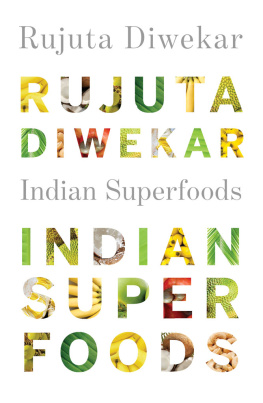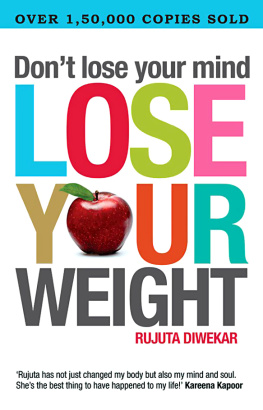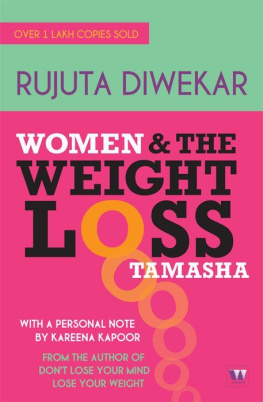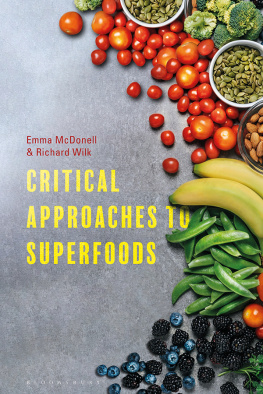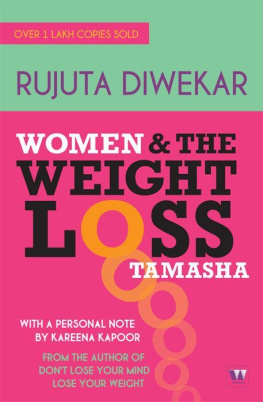Diwekar - Indian Superfoods
Here you can read online Diwekar - Indian Superfoods full text of the book (entire story) in english for free. Download pdf and epub, get meaning, cover and reviews about this ebook. year: 2016, publisher: westland, genre: Home and family. Description of the work, (preface) as well as reviews are available. Best literature library LitArk.com created for fans of good reading and offers a wide selection of genres:
Romance novel
Science fiction
Adventure
Detective
Science
History
Home and family
Prose
Art
Politics
Computer
Non-fiction
Religion
Business
Children
Humor
Choose a favorite category and find really read worthwhile books. Enjoy immersion in the world of imagination, feel the emotions of the characters or learn something new for yourself, make an fascinating discovery.
- Book:Indian Superfoods
- Author:
- Publisher:westland
- Genre:
- Year:2016
- Rating:3 / 5
- Favourites:Add to favourites
- Your mark:
- 60
- 1
- 2
- 3
- 4
- 5
Indian Superfoods: summary, description and annotation
We offer to read an annotation, description, summary or preface (depends on what the author of the book "Indian Superfoods" wrote himself). If you haven't found the necessary information about the book — write in the comments, we will try to find it.
Indian Superfoods — read online for free the complete book (whole text) full work
Below is the text of the book, divided by pages. System saving the place of the last page read, allows you to conveniently read the book "Indian Superfoods" online for free, without having to search again every time where you left off. Put a bookmark, and you can go to the page where you finished reading at any time.
Font size:
Interval:
Bookmark:
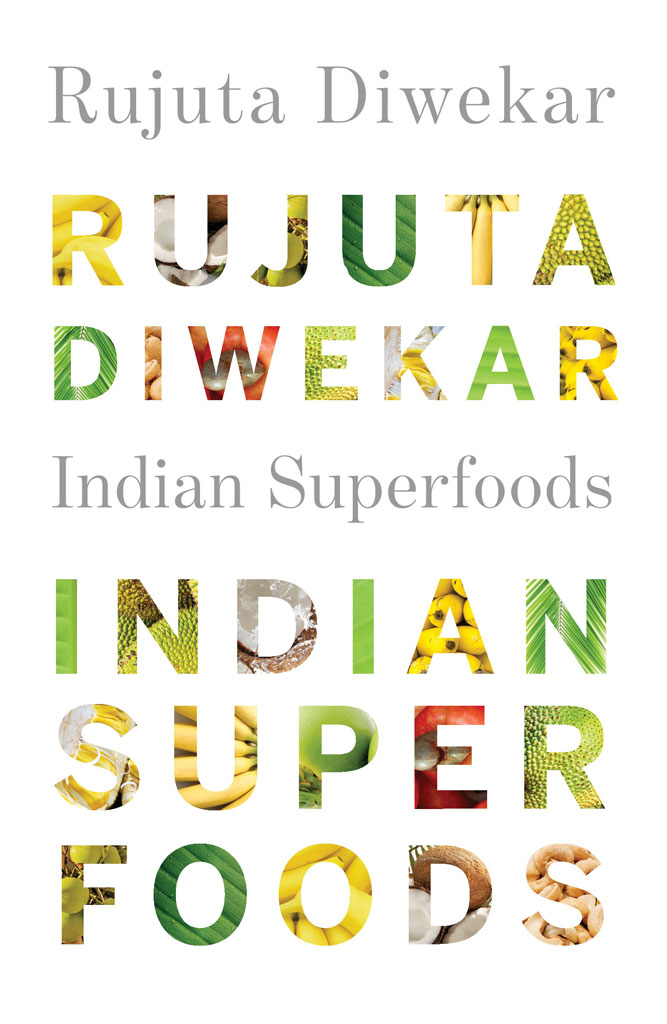
Indian Superfoods
Indian Superfoods
Rujuta Diwekar

westland ltd
61, II Floor, Silverline Building, Alapakkam Main Road, Maduravoyal, Chennai 600095
93, I Floor, Sham Lal Road, Daryaganj, New Delhi 110002
First published by Juggernaut Books 2016
Ebook edition published by westland ltd 2016
Copyright Rujuta Diwekar 2016
All rights reserved
ISBN: 978-93-86036-99-5
Typeset in Adobe Caslon Pro by R. Ajith Kumar, New Delhi
Disclaimer
This book is sold subject to the condition that it shall not by way of trade or otherwise, be lent, resold, hired out, circulated, and no reproduction in any form, in whole or in part (except for brief quotations in critical articles or reviews) may be made without written permission of the publishers.
Contents
Introduction
If you want to be a super hit, you must find young women to follow you, said a casting director to an aspiring actor at a coffee shop in Oshiwara. A friend from Italy whos also a famous DJ asked me over chai and toast, early one morning, Who do you think made the Beatles? I drew a blank and raised my eyebrows. Teenage women, she announced. You get the women to follow you, the rest of the world follows. I thought of my time in Masai Mara, when a lioness walked away without giving a damn and the lion immediately got up and followed her. See that, whispered my guide. Always male follow female, always. Thats the rule.
Once upon a time, not very long ago, it was the women in our homes who controlled what, when and how much we ate. And both the genders participated in food decisions and preparations. Till that time there was no such thing as diabesity. The latest buzzword, diabesity is the burden of obesity and diabetes that the rich of the developing world carry. Thats you and me, rich enough for phones, Wi-Fi and 4G.
This richness/technology has shifted the decision of what to eat, how much to eat and when to eat away from women. This power now rests with nameless, faceless pages which download at a crazy speed and inform us about the latest weight-loss aid. Who ate what and knocked off how much is now helping us decide what and how much to eat. None of these pages know anything about our lives, our likes or our wives but they tell us what to eat. They promise us weight loss with just eating something, this something always has to be bought, and its always expensive, unpronounceable and strikes us as a revolutionary idea. Its also stuff that your grandma doesnt recognize as food, doesnt grow locally and is invariably tasteless. It makes you feel that if you somehow suffer your way through it, then surely at the end of it there will be that all-elusive weight loss.
Is There an Indian Superfood?
Statistics though prove that less than 20 per cent people are successful in keeping the weight off after they have lost it. Not just numbers but your experience will tell you that its easy to knock the weight off but tough to keep it off. It seems to find a way back to your body, climbs into places where fat never existed and this time stays like it means to stay forever. Nothing, however crash, latest or expensive seems to knock it off.
Into this mix comes the superfood a food item that promises a miracle and comes from somewhere exotic. Acacia seeds, goji berries, kale the world seems to discover a superfood every week. Theres so much talk about them in the press that the word itself seems to have no meaning. Whats a superfood then really, do they even exist, asked my editor, Chiki.
Is it something that has more nutrition than others?
Is it more powerful?
For me superfoods are foods that, like true love, have stood the test of time. They have at least these five things in common:
1.They grow naturally in the same land you live
2.They are rich in micronutrients and taste
3.Every part of the crop/plant can be used in unique ways
4.They encourage diversity in your diet
5.They lead to a sustainable lifestyle, help local economy and make sound ecological sense
Superfoods Are Always Local
I recently attended a course called the Future of Food in Potsdam, Germany, and there we were, participants from all across the developing world, learning about what it would take to feed the world in 2050 with an exploding population of 9 billion people and the climate change, we are in a lot of trouble. And the focus constantly came back to this Future foods are local foods and people in the developing world give up eating the local foods because its less prestigious to eat them. And these local superfoods, which in ancient times and not so ancient times (like sixty years ago) were celebrated for their therapeutic, weight-loss and well-being properties, are now undervalued or simply lost. Then the West adopts them as novel foods for weight loss and well-being and they get a second lease of life.
So curcumin enters the health store as an antidote to fatigue and obesity but we dont even know that its haldi. The moringa powder that we mix in water for omega 3 and stamina is just the drumstick in the sambar and that amaranth is simply the rajgeera chikki you get at railway stations. While everyone in India knows how much dal to add to rice to make khichdi, someone in the West is studying its proportions to earn a PhD. And they will probably also pursue a post-doc in how the proportions change when the person is sick or when seasons change or whether you want to turn it into a dosa or an idli. We take food wisdom so much for granted that we dont even recognize it as something of great importance.
If nothing, at least let us acknowledge that we are copying the food habits of people who are copying us, or our grandmothers more specifically. So we are just dheela copycats. The stuff worth copying is not jumping queues, five-day workweeks, respecting pedestrian rights, etc., but we are not interested in that.
Sukhasana
Its not just food but even habits that need to be local. Sukhasana (easy pose or happy pose) is nothing but the cross-legged posture that you assume while sitting on the floor to eat. You can start with at least one meal a week in the sukhasana posture and then allow it to grow organically into your life. You will notice that meals in the sukhasana posture always feel lighter, tastier and even happier.
Stanford University researchers have recently built the squatty potty, one that replicates the Asian pot, and already sold more than a million of them. They are not too far away from coming up with research to prove that eating meals on the floor in a cross-legged posture is better for the colon, bloodbrain barrier and what have you. So you can either do it now as a practise of the culture you are born into or you can do it later, once someone acquires a patent on it.
Superfoods Are All about Food Traditions
Superfoods are compassionate and wise, like the Buddhist deities Avalokiteshwara and Manjushri, because without them in equal measure, there is no real power. At least according to the lama in Tabo monastery in Spiti, and I believe him.
Superfoods dont just stand the test of time but they are compassionate to the other plants that grow around them. They coexist, striking a symbiotic relationship with the soil, climate and living beings on their land. They are versatile, like Asha Bhosle, who can sing the bhajan and cabaret like she means it.
Superfoods can be used as therapy, will lend themselves to rituals and even bring income to those who grow them. In that sense these are the wise foods, ones that know they must bring pleasure to the palate, nourishment to the body and even work as medicine when required.
Font size:
Interval:
Bookmark:
Similar books «Indian Superfoods»
Look at similar books to Indian Superfoods. We have selected literature similar in name and meaning in the hope of providing readers with more options to find new, interesting, not yet read works.
Discussion, reviews of the book Indian Superfoods and just readers' own opinions. Leave your comments, write what you think about the work, its meaning or the main characters. Specify what exactly you liked and what you didn't like, and why you think so.

